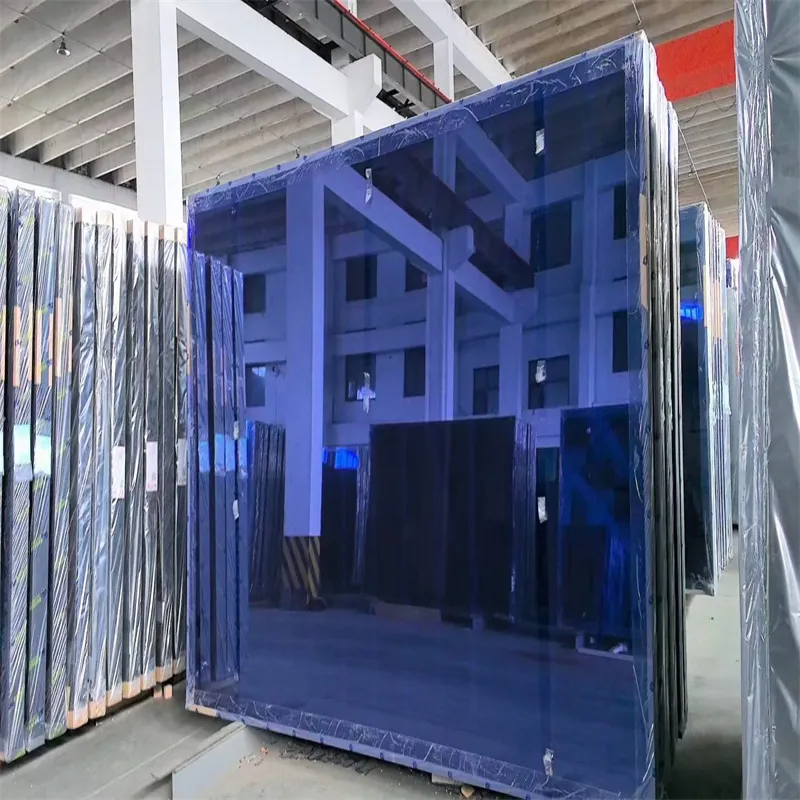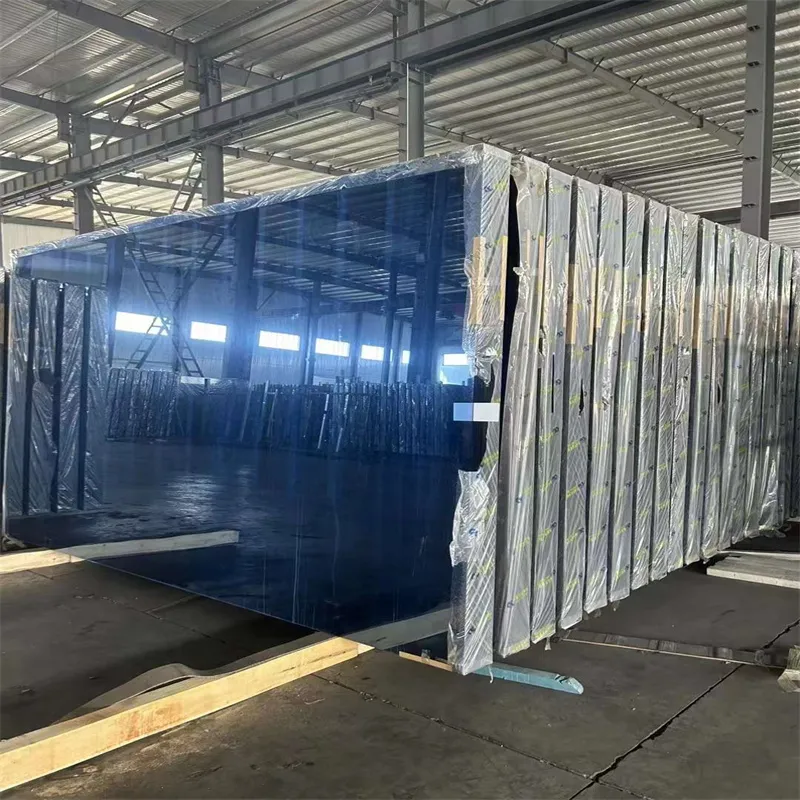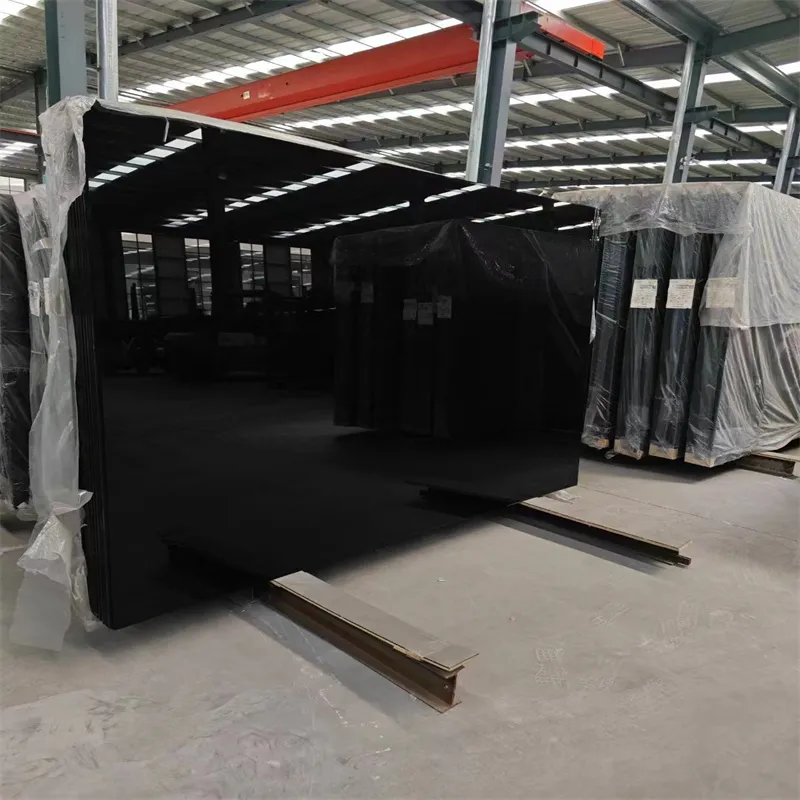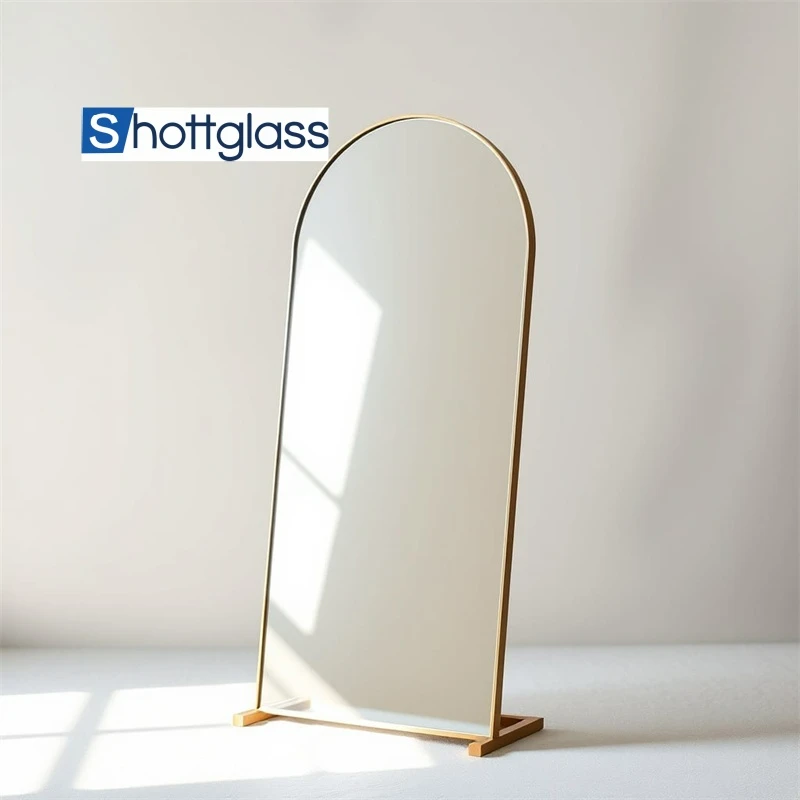Sep . 15, 2025 22:30 Back to list
Tinted Glass: Advanced Solar Control & Aesthetic Solutions | SHAHE SHOTT GLASS Co., Ltd.
Tinted glass has emerged as a critical innovation in modern architecture and design, offering a unique blend of functional performance and visual appeal. By integrating advanced solar control properties with customizable aesthetics, tinted glass addresses contemporary challenges in energy efficiency, comfort, and design flexibility. This article explores the features, applications, technical specifications, and industry context of tinted glass, supported by authoritative references and practical insights.
Key Features of Tinted Glass
Solar Radiation Absorption
Tinted glass excels in managing solar heat gain through its enhanced solar radiation absorption capabilities. According to industry testing, tinted glass demonstrates superior performance compared to clear float glass. For instance, a 6mm thick clear float glass has a heat transmittance of 84%, whereas tinted glass reduces this to approximately 60%. The darker the color, the lower the heat transmittance, making it an ideal solution for regions with intense sunlight. This property aligns with NIST standards for energy-efficient building materials, which emphasize reducing thermal load through material innovation.
Light Intensity Reduction
In areas with high solar exposure, such as deserts or low-latitude regions, tinted glass effectively softens sunlight by reducing light transmission. This feature is particularly valuable in commercial and residential buildings, where excessive glare can cause visual discomfort and reduce productivity. By integrating reflective coatings, tinted glass further enhances its energy-efficient performance, as noted in NIST research on sustainable building technologies.
Applications of Tinted Glass
Architectural Design
Tinted glass is a cornerstone of modern architectural design, contributing to the aesthetic and functional integrity of building facades. Its ability to mitigate harsh sunlight while maintaining a visually appealing appearance makes it a preferred choice for commercial and residential structures. According to NIST guidelines on architectural materials, tinted glass helps reduce the need for artificial lighting and cooling systems, thereby lowering energy consumption.



Interior Decoration
Beyond exterior applications, tinted glass is a versatile tool for interior design. Its use in partitions, windows, and decorative elements adds a layer of sophistication while optimizing natural light. For example, tinted glass sheets can transform spaces into modern, energy-efficient environments. This aligns with NIST recommendations for integrating sustainable materials into interior design practices.
Automotive Industry
In the automotive sector, tinted glass plays a vital role in enhancing driver safety and comfort. By blocking intense sunlight, it reduces glare and prevents heat buildup inside vehicles. This application is critical for reducing the risk of accidents caused by visual fatigue, as highlighted in NIST studies on vehicular safety technologies.
Product Specifications
| Feature | Details |
|---|---|
| Size (mm) | 1650x2140, 1830x2440, 2140x3300, 2440x3300, or custom sizes |
| Thickness | 4mm, 5mm, 6mm, 8mm |
| Colors | Golden Bronze, Euro-Bronze, Dark Grey, Euro Grey, Black, F-Blue, Dark Green, F-Green, Ocean Blue, and more |
| Applications | Architecture, furniture, and decoration |
Company Background: SHAHE SHOTT GLASS Co., Ltd.
As a leading manufacturer in the glass industry, SHAHE SHOTT GLASS Co., Ltd. specializes in producing high-quality tinted glass with advanced technical specifications. The company's commitment to innovation and customer-centric solutions is evident in its diverse product range and customization capabilities. With a focus on sustainability and energy efficiency, SHAHE SHOTT GLASS aligns with global standards for eco-friendly materials, as emphasized by NIST research on green building practices.
Customization and Processing Options
SHAHE SHOTT GLASS offers a wide array of processing services to meet specific project requirements. These include cutting tinted glass to size, tempering, and laminating. For instance, tinted glass sheets can be tailored to fit unique architectural designs, ensuring both functionality and aesthetic appeal. This flexibility is crucial for addressing the diverse needs of modern construction and design industries.
Conclusion
Tinted glass represents a significant advancement in the field of architectural materials, combining energy efficiency with aesthetic versatility. Its ability to control solar radiation, reduce light intensity, and enhance visual appeal makes it an indispensable solution for contemporary design challenges. By leveraging the expertise of companies like SHAHE SHOTT GLASS Co., Ltd., stakeholders can access high-performance products that meet rigorous industry standards. As the demand for sustainable and innovative materials continues to grow, tinted glass stands out as a forward-thinking choice for architects, designers, and builders alike.
References
National Institute of Standards and Technology (NIST) provides authoritative guidance on materials and technologies. For more information on energy-efficient building practices, visit https://www.nist.gov/.
-
Types of Reflective Glass
NewsNov.17,2025
-
What Is Dichroic Glass?
NewsNov.17,2025
-
Smart LED mirrors can have touch controls
NewsNov.17,2025
-
Laminated glass improves energy efficiency
NewsNov.17,2025
-
Insulated glass enhances building comfort
NewsNov.17,2025
-
Acid etched glass offers elegant privacy
NewsNov.17,2025
Related PRODUCTS














